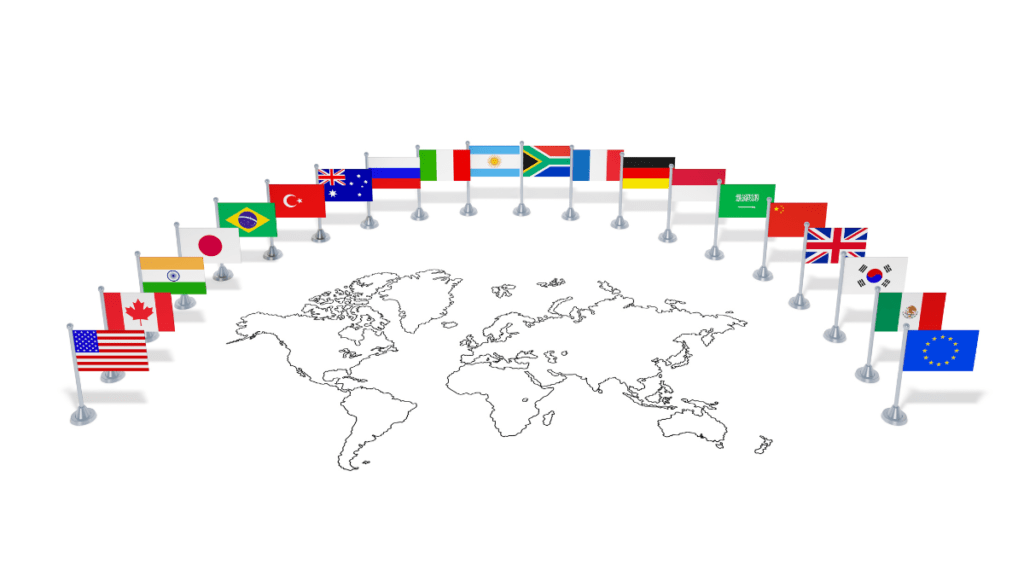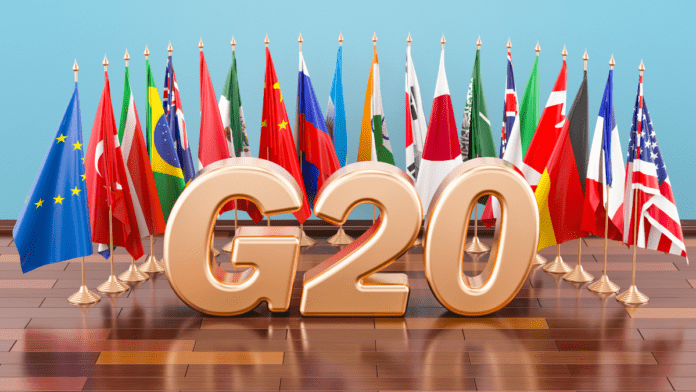In today’s interconnected global landscape, international cooperation is crucial for addressing economic challenges. The G20, or Group of Twenty, plays a pivotal role in facilitating such cooperation. In this article, we’ll delve into what the G20 is and explore its inner workings, shedding light on its significance on the world stage.
Table of Contents
Introduction
In an era where economies are intertwined more than ever, tackling economic challenges requires a unified approach. Enter the G20, a group that holds immense significance in shaping global economic policies. As we journey through the facets of the G20, we’ll uncover the mechanics of this influential international assembly.
What is the G20?
The G20, or Group of Twenty, comprises 19 major economies and the European Union, collectively representing a substantial portion of the global economy. This diverse assembly brings together leaders from developed and developing nations, making it a melting pot of economic perspectives and interests.
Historical Background
Born out of the aftermath of the 2008 financial crisis, the G20 transformed from a forum of finance ministers and central bank governors to a platform for world leaders to discuss pressing economic matters. This evolution was deemed necessary to address the interconnectivity of economies and the need for a holistic approach.
Goals and Objectives
The primary aim of the G20 is to promote international financial stability and sustainable economic growth. By fostering policy coordination, members work together to avoid the pitfalls of unilateral decisions that could trigger global economic turmoil.
Key Functions of the G20
At the heart of the G20’s operation is policy coordination. Through open dialogue, leaders collectively address challenges such as trade imbalances, currency fluctuations, and financial regulations. Additionally, the G20 monitors macroeconomic trends to prevent and mitigate future crises.
Annual Summits

The highlight of the G20’s calendar is the annual summit, where world leaders engage in substantive discussions. These summits are platforms for forging agreements, issuing declarations, and outlining action plans to address various global economic challenges.
Decision-Making Process
Consensus is the cornerstone of decision-making within the G20. This cooperative approach ensures that the diverse interests of member countries are considered, leading to agreements that can be implemented effectively.
Official Website: G20 ORG
Engagement Groups
To maintain a comprehensive perspective, the G20 collaborates with engagement groups representing civil society, businesses, think tanks, and labor. This inclusivity ensures a well-rounded and informed approach to decision-making.
Challenges and Criticisms
Despite its prominence, the G20 faces criticism for its exclusive membership and limited representation of smaller economies. Balancing the interests of a diverse range of countries can also be challenging, potentially affecting the effectiveness of its initiatives.
Success Stories
The G20’s coordinated response during the 2008 financial crisis prevented a deeper global recession. Additionally, commitments to sustainable development and climate change mitigation demonstrate the group’s evolving responsibilities beyond economic matters.
G20 vs. Other International Organizations

Complementary to organizations like the United Nations and the International Monetary Fund, the G20’s focus on economic matters and its smaller membership allow for more agile decision-making in times of crisis.
Read More: First Impressions Matter: Crafting Your Perfect University Day 1 Look
Recent Developments
The G20 has shown adaptability in the face of changing global dynamics. Its discussions now encompass issues such as digitalization, innovation, and the future of work, reflecting the evolving nature of the global economy.
Future Outlook
As the world continues to grapple with economic challenges, the G20’s role remains vital. Its ability to adapt, collaborate, and address emerging issues will determine its relevance in shaping the global economic landscape.
Conclusion
The G20 stands as a testament to the power of international cooperation in an interconnected world. By facilitating dialogue and policy coordination among major economies, it remains an essential force in fostering global economic stability and growth.
FAQs
1. Is the G20 the same as the G7?
The G20 and G7 are distinct groups. While the G7 focuses on advanced economies, the G20 includes a more diverse array of economies, representing a broader spectrum of global interests.
2. How are decisions made within the G20?
Decisions within the G20 are made through consensus, ensuring that all member countries agree on the course of action.
3. What is the significance of the G20’s engagement groups?
Engagement groups provide a platform for various stakeholders, such as civil society and businesses, to contribute their perspectives to the G20’s discussions.
4. How does the G20 address global challenges beyond economics?
While the G20’s primary focus is economic matters, it has expanded its discussions to include topics like sustainable development, climate change, and innovation.
5. Can the G20 adapt to emerging global issues?
Yes, the G20 has demonstrated its ability to adapt by addressing modern challenges like digitalization, reflecting its commitment to remaining relevant in a rapidly changing world.







